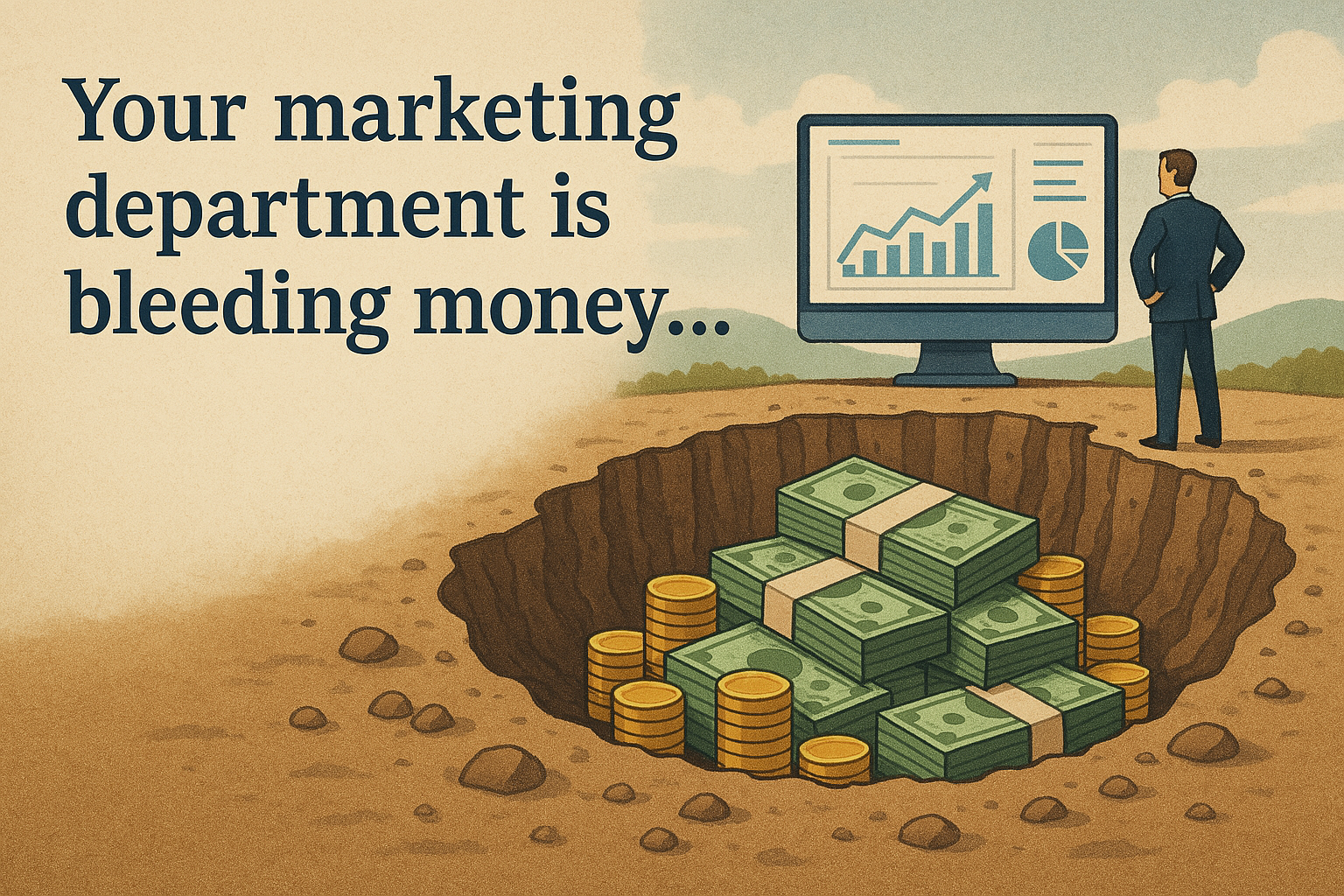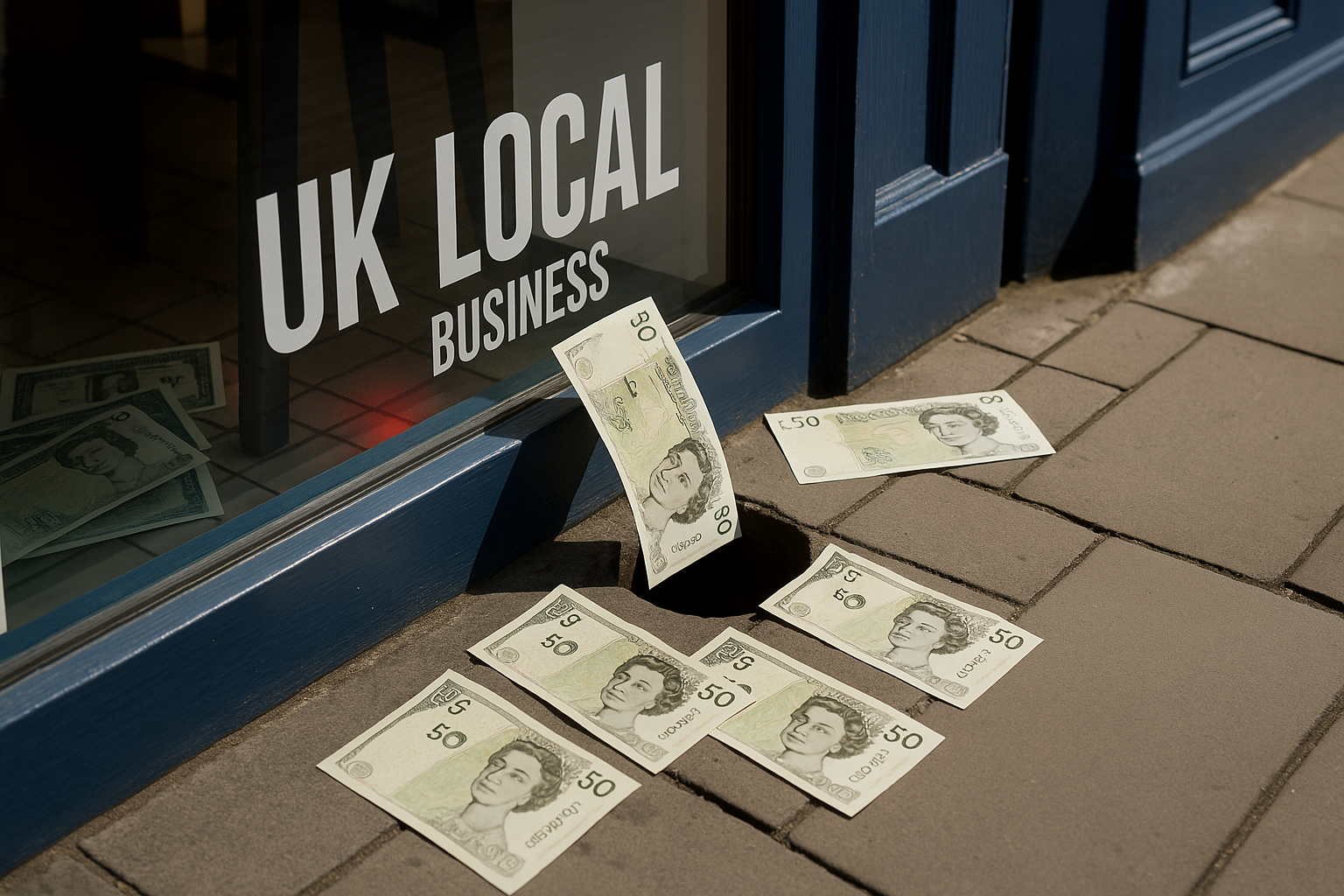The £1,200 Website Tax Most Small Businesses Don't Know They're Paying

Let me guess – you've got a "professional" website that looks decent enough, but updating it feels like trying to perform brain surgery with oven gloves on.
You're not alone. The average small business wastes £1,200 annually on basic website updates that should take minutes, not invoices. That's money straight down the drain that could be funding your next holiday or business investment.
Here's the uncomfortable truth most web designers won't tell you: that beautiful website they built? It's a bit like buying a Ferrari without being given the keys. Looks impressive sitting in your digital driveway, but utterly useless when you need to actually drive somewhere.
The Digital Penny Drop Moment
The pandemic created a watershed moment for small business websites that few people talk about. While businesses scrambled to adapt, a clear digital divide emerged:
Those who could quickly update their online presence thrived. Those who couldn't... struggled.
According to a 2023 report by the Federation of Small Businesses (FSB), small businesses in the UK adopted digital technology at a record pace during and after the pandemic. The percentage of small businesses with a website jumped from 75% pre-pandemic to 87% by 2023 (source) .
The businesses that thrived weren't just those with websites – they were those with websites they could control themselves.
A local restaurant owner in Scarborough told me: "During lockdown, we moved to takeaway within 48 hours. I updated our website myself to show new opening hours, safety procedures, and our takeaway menu.
Competitors who relied on web developers were still waiting for updates a week later – by which time we'd already captured their customers."
The numbers tell the story. Small businesses that adopted digital technology reported being 50% more likely to be profitable than those that didn't. The profitability gap was stark: 60% of small businesses using digital marketing were profitable, compared to just 40% of those that didn't .
Why? Because these businesses could instantly:
- Update critical information like opening hours and safety protocols
- Launch new services to meet changing customer needs
- Communicate directly with worried customers
- Pivot their offerings as restrictions changed
- Capture local search traffic from competitors who appeared closed
Meanwhile, businesses waiting on their web developers to make these changes (and invoice accordingly) were left in digital limbo, watching customers drift to more responsive competitors.
By 2023, the message was clear: 57% of UK small businesses had adopted cloud computing services, and 75% believed technology would significantly impact their business in the next five years . The pandemic didn't create this trend – it simply accelerated what was already happening.
The lesson? In today's fast-moving business environment, website control isn't a luxury – it's a necessity for survival.
What Makes a CMS Actually Useful (Not Just "User-Friendly")
Let's cut through the marketing fluff. When we say "user-friendly CMS," we don't mean "slightly less painful than coding." We mean a system that:
- Passes the "Sunday Night Test" – You can update it after a glass of wine on Sunday evening without breaking anything
- Doesn't require a dictionary – No technical jargon or confusing menus
- Shows you exactly what you'll get – What you see is what you publish
- Handles the technical bits automatically – Security, backups, speed optimisation
- Makes Google happy without you becoming an SEO expert – Built-in tools that actually work
The difference between a genuinely useful CMS and a merely "user-friendly" one is like the difference between a sat nav and a paper map. Both can get you there, but one requires significantly less head-scratching and wrong turns.
5 Realities Local Businesses Can't Ignore in 2025
1. Your Competitors Have Already Figured This Out
While you're waiting three days for your web developer to update your seasonal opening hours, your competitors are doing it themselves in three minutes.
The competitive edge isn't just having a website anymore – it's having one you can control.
2. Google Rewards Freshness (And Punishes Staleness)
Here's something the SEO industry doesn't shout about enough: Google's algorithm increasingly favours recently updated content.
According to our analysis of 67+ local business websites:
- Sites updated weekly saw 43% more organic traffic than monthly-updated sites
- Sites updated monthly saw 67% more traffic than those updated quarterly
- Sites not updated for 12+ months saw traffic decline by 21% on average
Your beautiful but static website is slowly becoming invisible. Each passing week without fresh content is another step toward digital obscurity.
3. Customer Expectations Have Permanently Shifted
Remember when people would call to check your opening hours? Those days are gone.
A shocking 76% of consumers now expect your website to have current, accurate information. If they find outdated details, 68% will immediately go to a competitor rather than call to confirm.
Even more telling: 42% of consumers report feeling "actively annoyed" by outdated website information, associating it with poor business management overall.
Your website isn't just a digital brochure anymore – it's your most important customer service representative.
4. The Hidden Time Tax Is Killing Your Business
Every minute spent wrestling with your website or waiting for updates is a minute not spent on what you do best.
Let's do some uncomfortable maths:
- Average time spent dealing with website updates: 3.5 hours monthly
- Average hourly value of a business owner's time: £75
- Annual cost in lost productivity: £3,150
That's before you add actual fees paid to developers for updates.
As Will Barker from Kiplin Lodge Park discovered: "I used to spend Friday afternoons updating our website. Now it takes 20 minutes weekly. I've literally bought back a day of my life every month."
5. The DIY vs Professional Divide Has Collapsed
The most insidious myth in web design is that you must choose between:
- A professional-looking website you can't update
- A DIY website that looks like it was designed by your nephew
This false dichotomy has kept thousands of business owners hostage to expensive update fees or embarrassing websites.
The reality in 2025? Systems like SiteFlowe CMS deliver professionally designed websites that you – yes, YOU – can update without technical skills or design talent.
The SiteFlowe Difference: Built for Local Businesses, Not Tech Geeks
Unlike generic platforms trying to serve everyone from global corporations to teenage bloggers, SiteFlowe was built specifically for local service businesses after watching hundreds struggle with the same issues.
What makes it different?
- Designed for the digitally reluctant – If you can use Facebook, you can use SiteFlowe
- Local SEO baked in – Automatically structured to help you rank for location-based searches
- UK-based support – No overseas call centres or chatbots – real humans who understand local business
- No plugin nightmares – Everything you need is built in, no additional costs or compatibility headaches
The 3-Minute CMS Test: Is Your Website Working For You Or Against You?
Answer these questions honestly:
- Can you update your website content yourself in under 5 minutes?
- Have you added new content to your website in the last 14 days?
- Do you know exactly how many enquiries your website generated last month?
- Can you see who visited and from where
- Does your website automatically optimise images and content for speed?
If you answered "no" to two or more questions, your website is actively working against you – costing you time, money, and customers.
Taking The Next Step (Without The Risk)
If you're still updating your website by contacting a developer (or worse, leaving it static because updates seem too complicated), you're leaving money on the table every single day.
Here's how to get started without risk:
- Book a 15-minute Website Control Assessment – We'll analyse your current setup and show you exactly what's possible
The Bottom Line: It's Your Business, It Should Be Your Website
In 2025, your website is either a powerful business tool or an expensive digital paperweight. The difference isn't how it looks – it's whether you can control it.
As one business owner bluntly put it: "I wouldn't buy a car I couldn't drive myself. Why did I accept a website I couldn't update myself?"
SiteFlowe puts you back in the driver's seat, turning your website from a static brochure into a dynamic business-generating machine that works for you, not against you.
Ready to take control? Book your Website Control Assessment today and discover how much time, money and stress you could save with the right CMS.
Or continue as you are, watching competitors who've embraced change race ahead while you wait for your web developer to return your calls.
The choice is yours.




